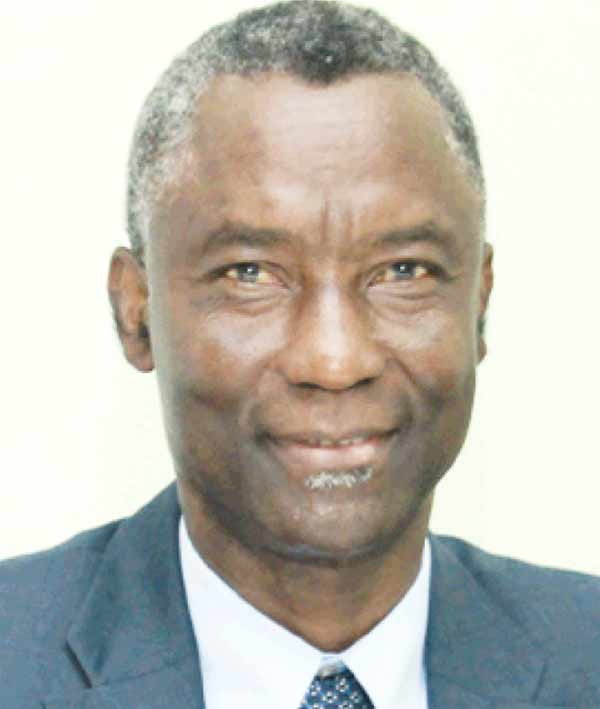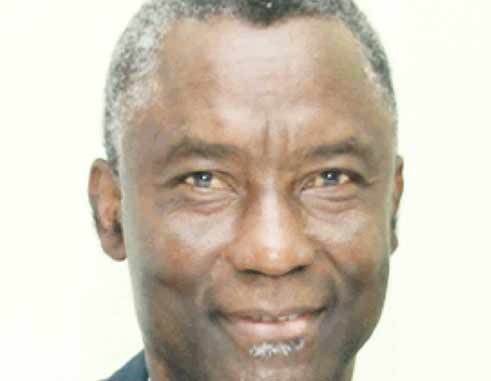
ONE of the major contributions of Saint Lucian journalist and professor Humphrey A. Regis is the development of a theoretical framework for the study of the relationship between mass communication and cultural domination.
Even though reviewers have called that contribution authoritative, independent and even “seminal,” in the 1990s and early 2000s Regis failed in his attempts to ensure the publication in the Caribbean of the manuscript that presents that contribution.
But in 2004, one journal in the United States published the manuscript, and this year, more than ten years later, another publisher in the United States has republished it.
The difference between the fates of the manuscript in the Caribbean and its fates outside the region may offer insights into the thinking of “intellectuals” in the region.
Previous frameworks see the relationship as one in which the mass communication promotes the flow of elements of “culture” from the more powerful societies to the less powerful societies, and contributes to the adoption of the imported culture and the related changing of native culture in the less powerful.
Regis calls this cultural domination by importation (from the perspective of the less powerful) or by exportation (from the perspective of the more powerful).
But borrowing from studies of the history of Christianity, intergenerational change in Africa, and the music and culinary and literary cultures in the Caribbean, Regis proposes a framework that he says challenges and complements the previous ones.
He proposes that the relationship may include the origination of elements of culture in the less powerful societies; the exportation of the elements to the more powerful socie¬ties; the modification of the elements in the more powerful; the re-importation of the modifications by, or re-exportation of the modifications to, the less powerful; and the adoption of these very modifications by the less powerful originators.
Regis calls this cultural domination by re-importation (from the perspective of the less powerful) or by re-exportation (from the perspective of the more powerful).
The framework sees mass communication as a correlate of the characteristics of the original cultural elements in the less powerful; a transmitter of these elements from the less powerful to the more powerful; a correlate of features of the modification of these elements in the more powerful; a transmitter of these modifications from the more powerful to the less powerful; a contributor to the fates of the modifications in the less powerful originators; a correlate of characteristics of the modified cultural elements in the less powerful; and one factor the characteristics of which could be shaped by, and the significance of which may be contingent upon, certain powerful contextual conditions.
Regis has proposed scores of research questions and hypotheses, as well as several research agendas or programmes, for the study of the reggae “revolution” of the 1970s through the application of this framework – an undertaking that one reviewer said our CAPE, SALCC and UWI critics and students and scholars “should relish.”
In the late 1990s and early 2000s, Regis failed in his appeals to have the manuscript with these ideas published in the Caribbean, with at least one of the appeals going to an esteemed publisher associated with one of its tertiary institutions.
But in 2004, The Journal of African Communications published the manuscript with the title Mass Communication and Cultural Domination: The Re-importation / Re-exportation Framework. Editor Andy Alali said on behalf of The Journal: “Clearly, the analysis breaks new ground by: exploring the highly visible aspects of culture; examining the relationships between communication and cultural domination; and suggesting ways the re-importation/re-exportation framework can be applied to scholarship on narratives and cultural identity. We hope students and scholars in the field would welcome this significant contribution to the literature.”
More than 10 years later, the publisher of a “boutique” of works that calls itself The Edwin Mellen Press has published the manuscript and agreed that Regis retain the copyright to it. The provocative title for the new release is How American Reggae Redefined Jamaican and Caribbean Reggae: A Theoretical Study of the Relationship Between Mass Communication and Cultural Domination (ISBN: 978-1495503658).
The first part of the title, How American Reggae Redefined Jamaican and Caribbean Reggae, may offer an indication of the reason why the manuscript failed to win the approval of publishers in the region.
It seems to implicitly ask “leaders” in the Caribbean who used to call themselves “intellectuals,” “progressives” and “revolutionaries,” but who now only focus on calling themselves “leaders” and “intellectuals,” to revisit their roles in what they would call the reggae “revolution” of the 1970s.
It also seems to implicitly ask them to ponder the possibility that their roles indeed amounted to a certain participation in or facilitation of the triumph of colonialism and/or neo-colonialism in the period that was immediately after what the people of the region call the “attainment” of “internal self-government” and “independence.”
In addition, it seems to implicitly ask them to ponder the possibility that one of the hallmarks of the “revolution” was the transformation of a figure that really was a creation, an instrument and a beneficiary of colonialism and neo-colonialism from “singer,” “musician,” “music player” and/or “reggae singer” to “leader,” “prophet,” “visionary,” and yes, even, in the eyes of the “intellectuals,” “messiah.”
Although Mass Communication and Cultural Domination and How American Reggae Redefined Jamaican and Caribbean Reggae are both available from publishers in the United States, the ideas in them are available and accessible to people in Saint Lucia.
These ideas are in Chapter 9 through Chapter 12 in Liberated Academics in Studies of Caricommoners, which Regis published with Vieux Fort Comprehensive Secondary School in 2013 to mark the 50th anniversary of the establishment of the School.
Chapter 9 has the title Cultural Re-importation/Re-exportation: Cultural Definition, Continuance, Change.
Chapter 10 has the title Cultural Re-importation/Re-exportation: Jamaican and Caribbean Reggae in 1970s.
Chapter 11 has the title Cultural Re-importation/Re-exportation: Mass Communication and Reggae in the 1970s.
Chapter 12 has the title Mass Communication, Cultural Domination, and Relations Between Cradles of Culture.
The book Liberated Academics in Studies of Caricommoners is available from Vieux Fort Comprehensive Secondary School, whose means of contact include 758 454 6350 (voice) and [email protected] (e-mail), at XCD $75.
Proceeds from the sale of the book will be for the CHEIKH ANTA DIOP Awards, with which Regis and the school support students who specialize in history for the CSEC level and for the CAPE level.
The School made five awards in the 2014-2015 school year, and plans to make more awards in coming years, to re-establish the subject of history to the prominent place it should have in the hearts and minds of the young citizens of Saint Lucia.
The CHEIKH ANTA DIOP Awards programme specifically seeks to engender interest in the subject both as an important basis for our sense of ourselves as a people and as a source of references for our individual, community and national development.
Regis, a native of Zhon, also known as Victoria Street in Dennery, was a student of the Dennery Infant School, Dennery Boys School, Vieux Fort Secondary School (now Vieux Fort Comprehensive Secondary School at La Ressource), and the Saint Lucia Teachers College (now Teacher Education and Educational Administration Division of the Sir Arthur Lewis Community College).







I have read Prof. Regis’ publication, Liberated Academics in Studies of Caricommoners, as well as several other scholarly contributions. His passion for his subjects of choice is unquestionable, and it is obvious in the depth and breadth of documentation and the overwhelming list of material that defines his bibliography. It’s a sad reflection on the institutions and so-called intellectuals in our region charged with the responsibility to further the cause of Caribbean identity and Africanism, for their failure/refusal to acknowledge both the writer and his works.